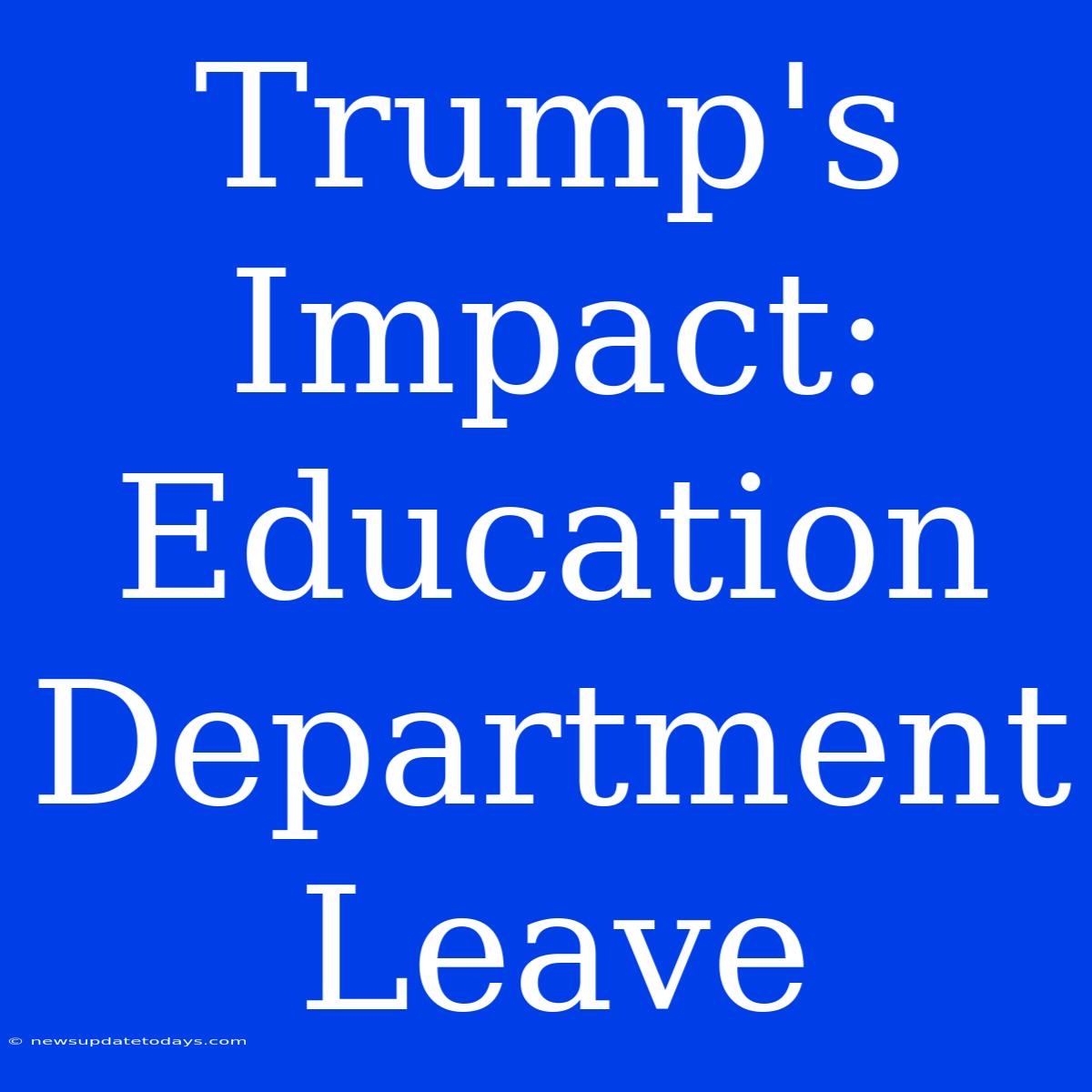Trump's Impact: A Lasting Mark on the Department of Education?
Donald Trump's presidency left an undeniable mark on numerous aspects of American life, and the Department of Education was no exception. His administration's policies, appointments, and overall approach to education sparked significant debate and continue to shape the landscape of American schooling. This article delves into the key impacts of the Trump administration on the Department of Education, exploring both its successes and criticisms.
Key Policy Changes Under Trump
1. School Choice Expansion: The Trump administration championed school choice initiatives, advocating for charter schools, voucher programs, and other alternatives to traditional public schools. This focus aimed to increase competition and parental options, but critics argued it diverted funds from already underfunded public schools and exacerbated inequalities. The debate over equitable access to quality education remains central to this policy.
2. Regulations and Deregulation: A significant theme of the Trump administration was deregulation. This extended to the Department of Education, where numerous Obama-era regulations were rolled back or significantly altered. Supporters lauded this as reducing bureaucratic burdens on schools, while critics expressed concerns about the potential loss of crucial student protections and accountability measures. The long-term effects of these regulatory changes are still being assessed.
3. Focus on Vocational Training: The Trump administration emphasized the importance of vocational training and skilled trades, promoting apprenticeships and career and technical education (CTE) programs. This initiative aimed to prepare students for in-demand jobs and address skills gaps in the workforce. However, critics questioned whether this focus adequately supported broader academic goals and the needs of all students.
4. Higher Education Reforms: Changes were also implemented in higher education, including efforts to simplify the student loan repayment process and address rising tuition costs. While some of these efforts aimed to make college more accessible and affordable, the extent of their success is a subject of ongoing debate.
Controversies and Criticisms
The Trump administration's education policies faced considerable criticism. Concerns were raised regarding:
- Undermining of Federal Protections: Critics argued that the deregulation efforts weakened important protections for students with disabilities, LGBTQ+ students, and other vulnerable populations.
- Equity Concerns: The focus on school choice was criticized for potentially exacerbating existing inequalities, particularly for students from low-income backgrounds and minority groups.
- Lack of Funding: Despite the rhetoric around school choice and improvements, critics pointed to insufficient funding for public education as undermining many of the stated goals.
Long-Term Implications
The legacy of the Trump administration's impact on the Department of Education is complex and multifaceted. While some initiatives may have yielded positive outcomes in specific areas, others have raised concerns about equity, accountability, and student well-being. The long-term consequences of these policies will continue to unfold, shaping the educational landscape for years to come. Further research and analysis are crucial to fully understand the lasting impact of this period on American education.
Keywords: Trump, Department of Education, School Choice, Deregulation, Vocational Training, Higher Education, Education Reform, Education Policy, Obama-era Regulations, Student Loan Repayment, Equity in Education, Charter Schools, Vouchers, CTE.

